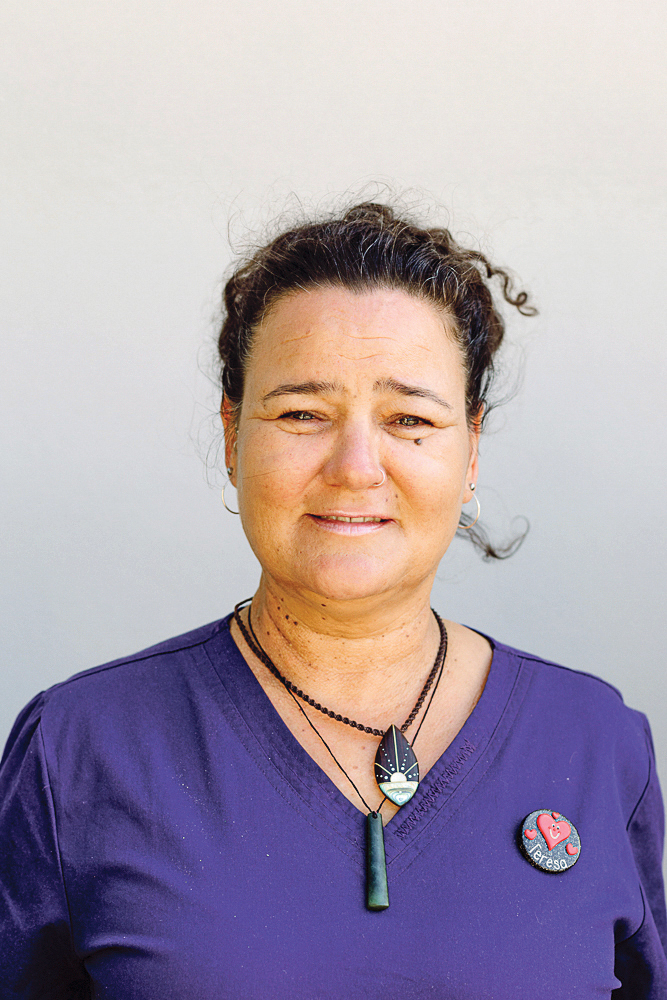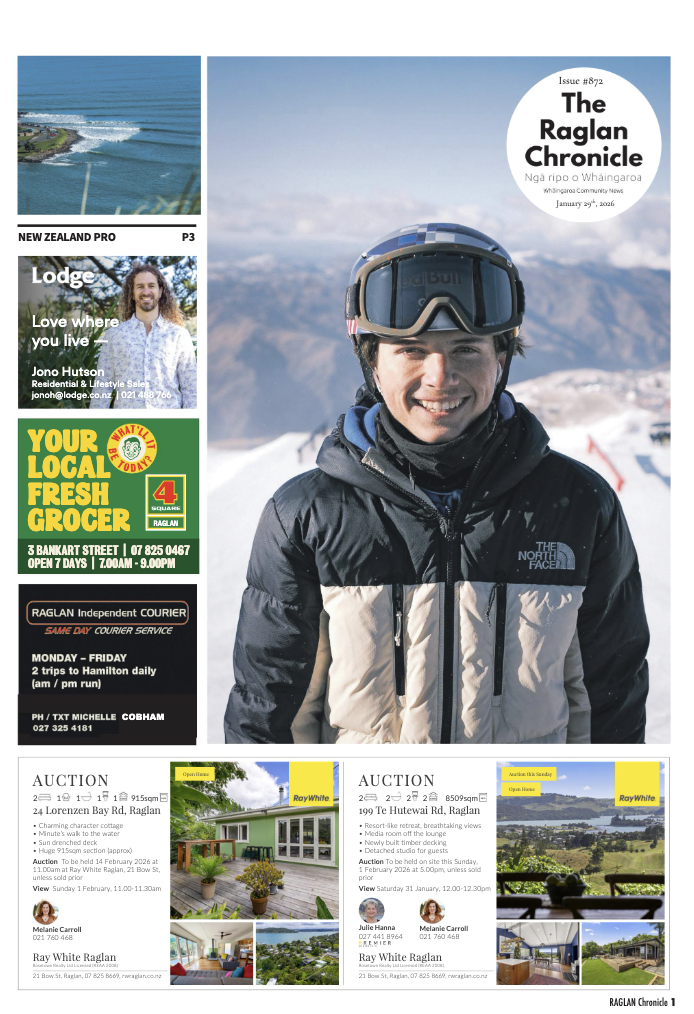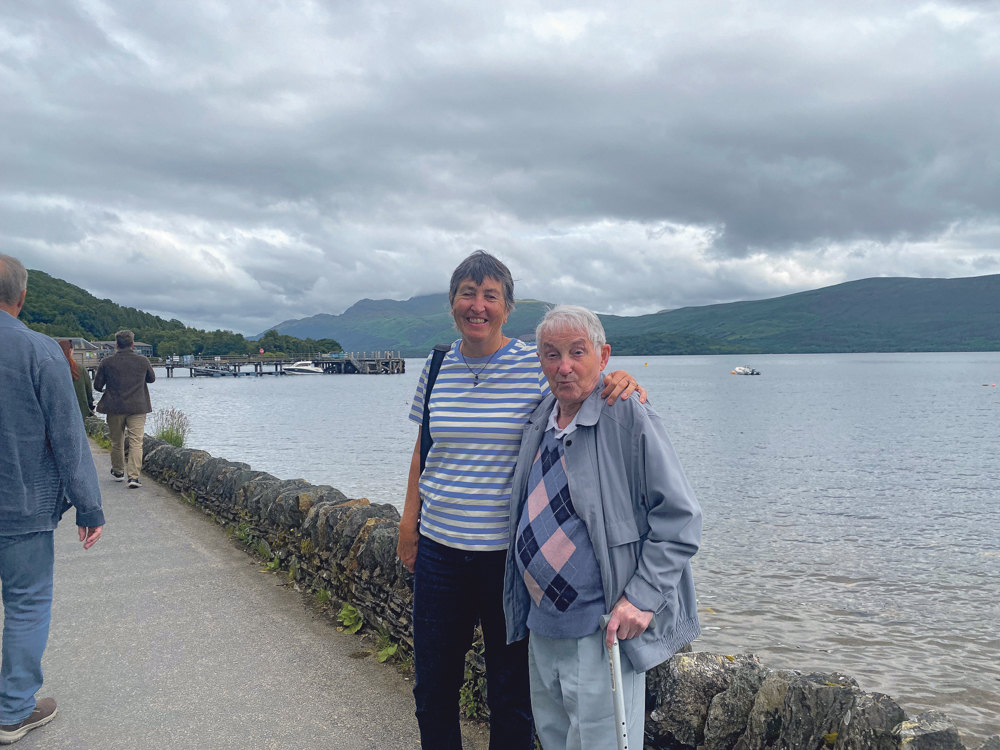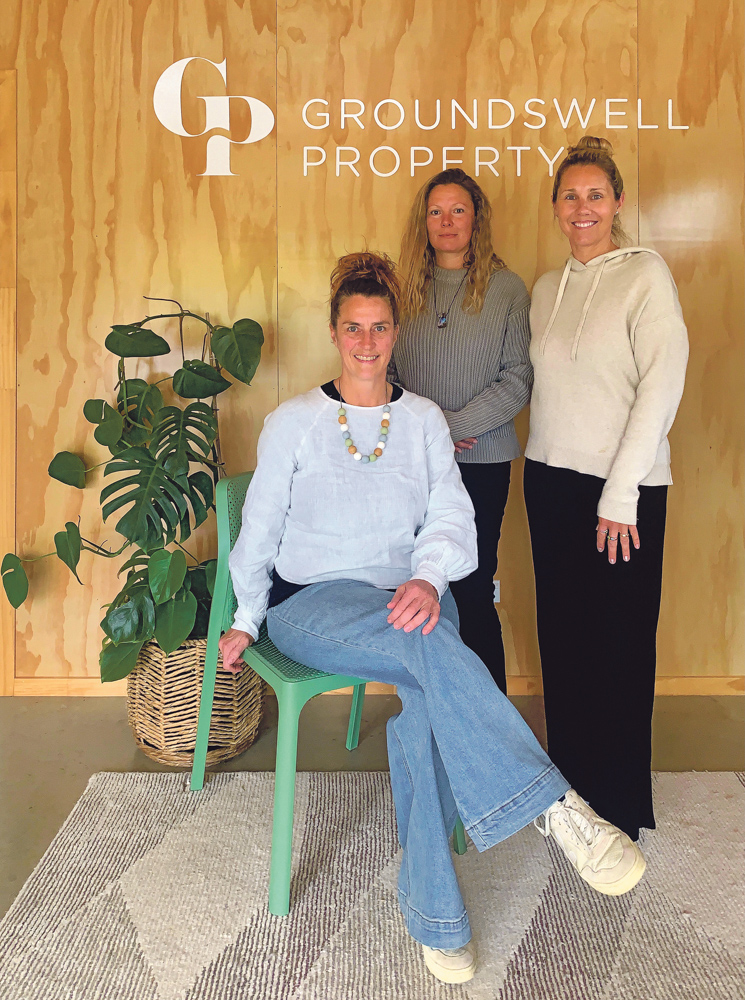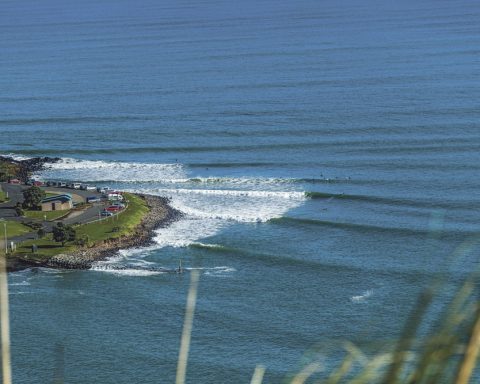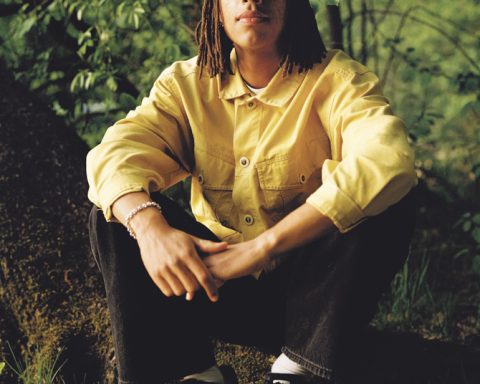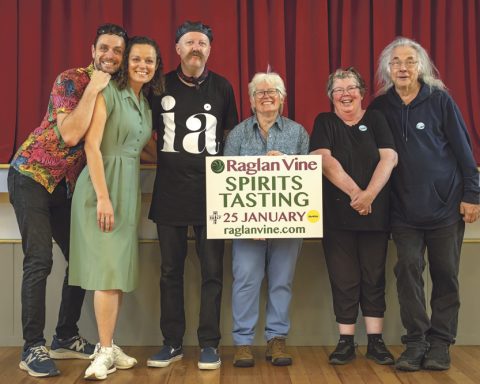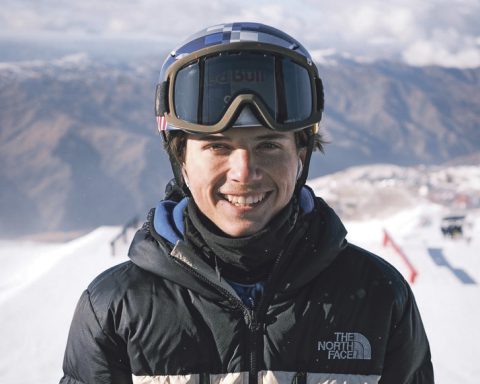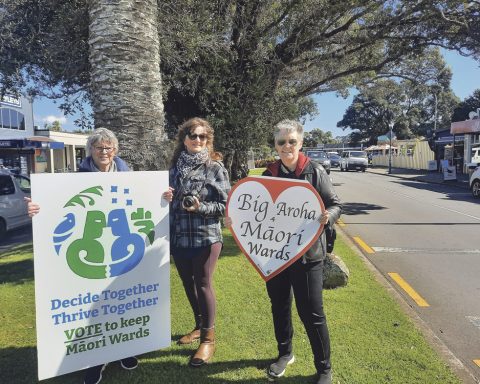This month I sat down with Teresa Morgan from the Raglan Medical Centre to talk about Tumanako Whāingaroa, our local Suicide Prevention Group, their role in our community and their plans for the future.
Tell me a little bit about yourself and the roles that you play in this community.
I’ve lived in Raglan for about 30 years now. I worked at Westpac Bank for 16 years. After it shut down, I worked at the Holiday Park before landing a job at the doctors’ clinic. I initially worked in reception and as a medical centre assistant. Then I got into smoking cessation. One of the questions you ask is what sort of stressors do you have?
Next minute, these people would be coming out with all this stuff and it’s like, oh my God, you want to try and quit smoking now? It naturally morphed into a support role where it was like, okay, they’re going through a separation or they’ve just lost their job, how can we support you? Then the Kaiāwhina role was introduced by our Primary Health Organization – Pinnacle Midlands Health Network – which is dealing more with the social side of hauora. When I started, they said to me, get out into the community, find out what’s out there, then bring it back to the clinic.
In my first year I joined all these groups and in 2016 our Suicide Prevention group coordinated the Rob Mokaraka event in conjunction with our first Hīkoi for Hauora to actively encourage normalising discussions around mental health struggles. I connected with so many amazing people but I completely burnt myself out. For the past few years Raglan Medical has been partnered with Te Toi Ora delivering medical services at fortnightly Marae Clinics which has been very successful at addressing access barriers to health care.
Mike at the Community House has also been a great person to connect with and has been an incredible support. I was very moved to join the Suicide Prevention Group after a close friend of mine lost her son to suicide. There just didn’t seem to be a lot of support around locally. There is a need for this but the need hides. You’ve really got to dig to get in there.
A lot of my role is making connections and developing trust, because the people that I want to get to know are the ones that don’t want to get to know us. We’ve still got people in our community that are not enrolled anywhere. That really worries me because I know there’s nobody following them up or getting them to come in for different screenings to help maintain their wellbeing, instead of being the ambulance at the bottom of the hill. It’s not always about prescribing medicine, it’s about having some kōrero, some connection and building relationships. I’m really lucky that I got into this role at the age that I am now because as a young person with not a lot of lived experience, it would be really hard to put yourself in their shoes.
Tell me about the Suicide Prevention Group and what you do.
Our group is made up of people within our community who are passionate about wellbeing, work closely with our wider community on the ground and have real lived experience with suicide and grief.
Our main focus for the last couple of years has been the Hīkoi for Hauora and to bring out conversations, provide education, training and resources for people. I want it to be so much bigger. We’ve been trying to organise booklets with a directory of services. Te Whatu Ora sometimes come along to support us. It’s difficult because there is no funding.
I also found out at our last meeting that, as of the 1st of July, Victim Support are no longer funded to offer support alongside police for suicides. That is spurring us on to try and create something at a community level.
So among other things, you are trying to create your own Victim Support equivalent for Whāingaroa?
We would love to have our own mental health response team. But that’s massive. We need people with specific skills. I’m not sure how we’ll go about it yet, maybe we will look like Victim Support to start off with. The more we share about our group, hopefully somebody is going to go, I’ve got those skills and I’ve got the time. We’ve also run suicide awareness courses around developing a toolbox of how to respond and support someone close to you experiencing suicide ideation.
The main thing that I got out of those courses is that there is absolutely nothing wrong with going up to somebody and saying, are you okay? And there’s nothing wrong with asking; are you thinking about harming yourself or are you thinking about suicide? And then the questions that come after it, do you have a plan? Do you have a time frame? Potentially that’s going to delay them for a second. When I’ve read or spoken to people about suicide, pretty much a hundred percent of them have said they didn’t actually want to die, they just wanted to stop the pain and the hurt. That’s what I keep in my head if I’m getting close to having those conversations with people. I guess that’s why our role as outreach is really important because you’re slowly building trust.
Is this part of a national effort?
We’re focused on local but we’re taking bits from the national. There’s even an international movement and their theme for 2025 and 2026 is Change the Narrative. It’s always been such a taboo subject. I rarely see anything around suicide, specifically. Mental health, yes, but that’s a massive area. International groups have amazing resources. We want to take some of that stuff and put a local spin on it.
Do you ever feel hopeless about the situation? I know that taking action makes me feel better, is that the same for you?
Action does make things better for me. I remember after the first Hīkoi for Hauora, we packed up, we went to the pub and everyone was so happy but I just felt completely empty. There was no emotion at all. I couldn’t feel sad. I couldn’t feel happy. It was almost like I was in my own little bubble. I was totally burnt out. From there, I made big changes. I’ve got my own little routine. I cycle to work from Upper Wainui. I practise gratitude every morning. I thank every part of my body and then I move on to Papatūānuku, Ranginui, Tangaroa, Tāwhirimātea. Then as I come across the walk bridge into Raglan, I say, “Mōrena, Whāingaroa! What have you got in store for me today? Bring it on!” I try to meditate and do yoga daily. By the time I get to work, I’m ready. You know, I’m really lucky that I have an incredible partner who is very patient and caring. It’s the same with the Suicide Prevention Group. The group is really supportive, no idea is a dumb idea. I’m lucky that I have access to lots of amazing mentors and support.
How can people reach out to the group or get involved?
We would love feedback from anybody. They can contact me here at the clinic. If they know anybody in the group, they can absolutely go up and chat to them. If they don’t feel comfortable talking to us, but they want to put across an idea or organise something, email us! We would love to hear people’s ideas or expertise in this area.
If you are interested in supporting Tumanako Whāingaroa, email Teresa at teresa.morgan@raglanmedical.co.nz
